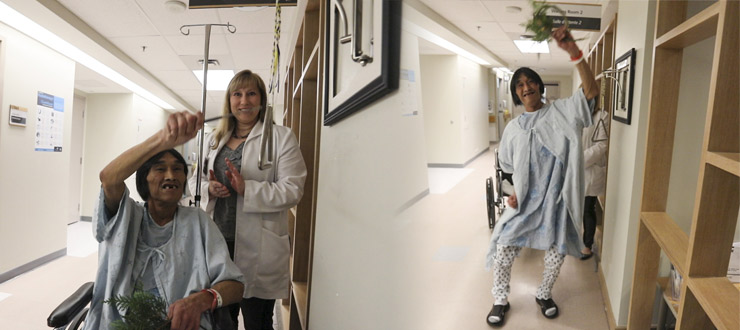
Inuk patient Robert Ukaliannuk rang the triangle after his last radiation treatment and celebrated with a “shake it all off” traditional healing dance.
Other patients clapped as Robert Ukaliannuk rang the triangle after his last radiation treatment and celebrated with a “shake it all off” traditional healing dance. But the moment was bittersweet, given the long road that brought him to The Ottawa Hospital’s Cancer Centre.
“It’s part of healing, to shake it all off, like a dog. Let it go and move on,” said Ukaliannuk, 49, who became sober a year before being diagnosed with Stage 4 lung cancer.
Just before his discharge from hospital in May, Ukaliannuk asked to share his life story, which includes homelessness, parents who are alcoholics, two brothers who committed suicide and a five-year-old sister who went missing at residential school and was later found murdered.
“They didn’t tell my parents,” Ukaliannuk said. “It was before I was born. I was named after her, in our culture. Alakah. She was my oldest sister.”
Ukaliannuk expressed his gratitude to the nurses and doctors at The Ottawa Hospital who cared so well for him. A biopsy of his upper lungs has left him speaking in a whisper, but he persevered in telling his story, which illustrates how colonization and the residential school system continue to affect Indigenous people.
“There are reasons why we see too many Indigenous people on the streets,” said Carolyn Roberts, Aboriginal Nurse Navigator in the Cancer Centre. “’Cultural competency’ is understanding why he lived a rough life and how he came to be here.”
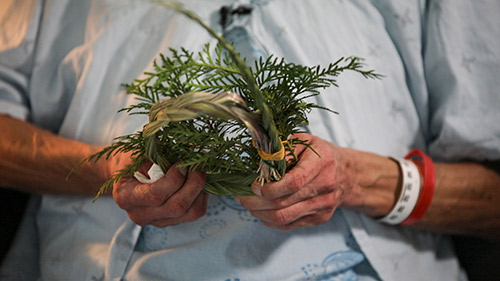
Robert Ukaliannuk’s roommate in a treatment centre introduced him to the First Nations tradition of using sweetgrass and cedar for cleansing and healing. “It smells good. It keeps me grounded,” he said.
Born in Igloolik, in Nunavut, Ukaliannuk grew up in Iqaluit but moved to Ottawa about 20 years ago. He took a carpentry course and worked as a labourer, but lived mostly on the streets. About a year ago, he began to turn his life around. He went to a treatment centre and became sober. At the Wabano Centre for Aboriginal Health on Montreal Road, he belongs to support groups, uses the sweat lodge, learned how to pray, and sees his family doctor.
“The residential school affected my whole family. People don’t know that,” Ukaliannuk said. “My Dad and my Mom became addicts because they didn’t know how to deal with it. They were blaming each other about my oldest sister because she just disappeared…. My Mom found out about my sister’s grave 50 years later. It’s in Quebec City.”
“Loss and grief accumulates generation after generation and results in an eruption of trauma symptoms and behaviours,” explained Wabano’s My Life, My Wellbeing report. “Just as intergenerational trauma has an effect through a family and a community, so too can healing; it can be contagious.”
Sadly, Robert Ukaliannuk passed away shortly after sharing his story. The Ottawa Hospital is grateful to him for allowing his story to help shape improved care for patients.

Support patient care and research at
The Ottawa Hospital
You might also like…
We’ve got you covered: The Ottawa Hospital now offers bandages for a variety of skin tones
Whenever you’ve scraped your knee or had your blood drawn, odds are your bandage was the same colour every time. Peach has been the default hue for over a century — but no longer at The Ottawa Hospital.
Looking to get screened for cancer but don’t have a family doctor? Make an appointment with our “Superscreener”
Regular cancer screening can help save lives. For people living in Eastern Ontario who do not have a primary care provider, the Champlain Screening Outreach Program offers screening services for breast, cervical, colorectal and lung cancer. Find out how to book your appointment with Nurse Practitioner Sarah Junkin-Hepworth, our “Superscreener.”
The power of community @ TOH
Last year, Registered Nurse Macrina Valcin created an intricate display on her unit for Black History Month, transforming the unit’s bulletin board into a powerful celebration of Black people, culture and history. This year, thanks to the warm support and encouragement from a newly formed inclusive community, Macrina is showcasing her passion project to a much larger audience.
New gender-affirming surgery clinic now accepting patients
The Ottawa Hospital’s new gender-affirming surgery clinic is truly one of a kind. Launched in September 2023, it’s the only clinic in Ontario to offer trans and non-binary patients facial, top and bottom procedures. Plastic Surgeon Dr. Nicholas Cormier and his team are happy to announce that they are now accepting patient referrals from physicians.
Patient gifts a piece of home to Indigenous Cancer Program
Inuit patients can now see and hold a piece of their traditional territory in the Windòcàge Room at the General Campus, thanks to an interactive gift donated to The Ottawa Hospital by a cancer patient.
These volunteers turn chocolates and stuffed animals into MRI machines
We all know that a gift has the power to bring a smile to someone’s face. But did you know that the gifts you buy at our gift shops also have the power to help us buy important medical equipment? Our shops are run by a group of fundraising volunteers and staff from The Ottawa Hospital Auxiliary. Here are some other ways their efforts help make meaningful change.


 To reset, hold the Ctrl key, then press 0.
To reset, hold the Ctrl key, then press 0.
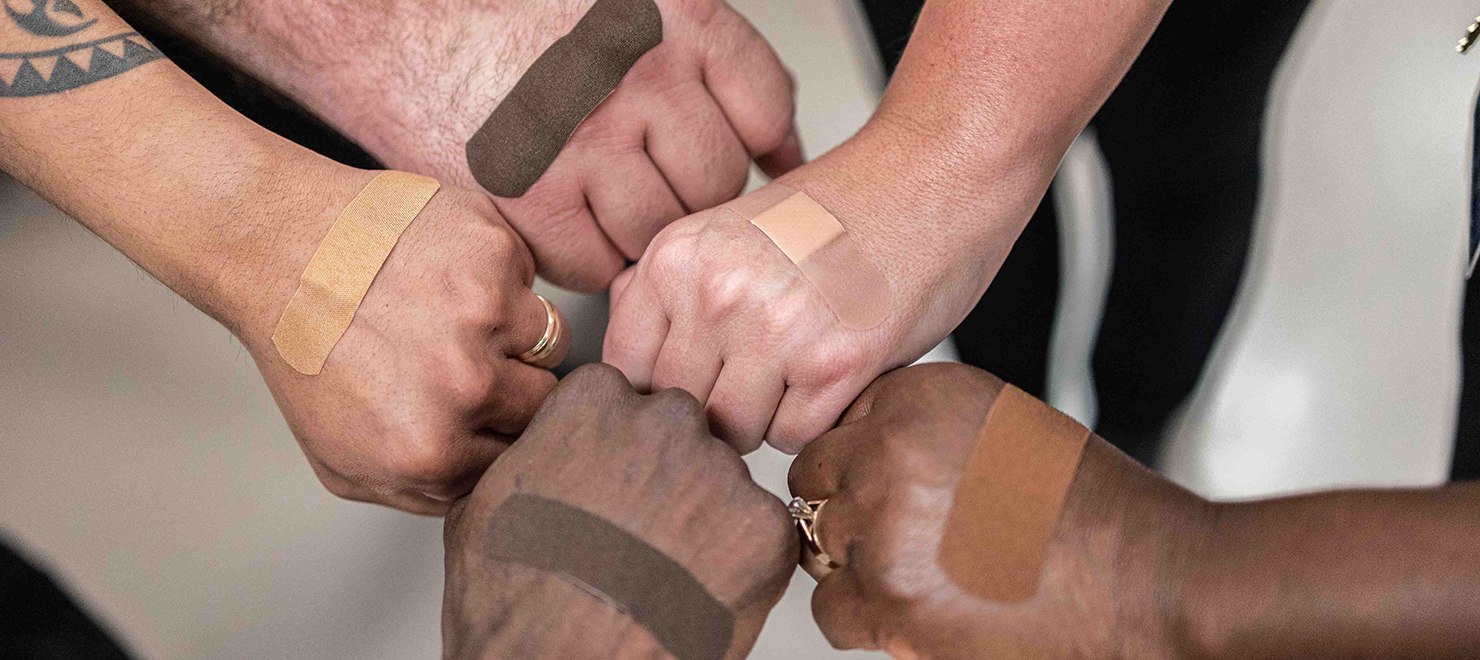
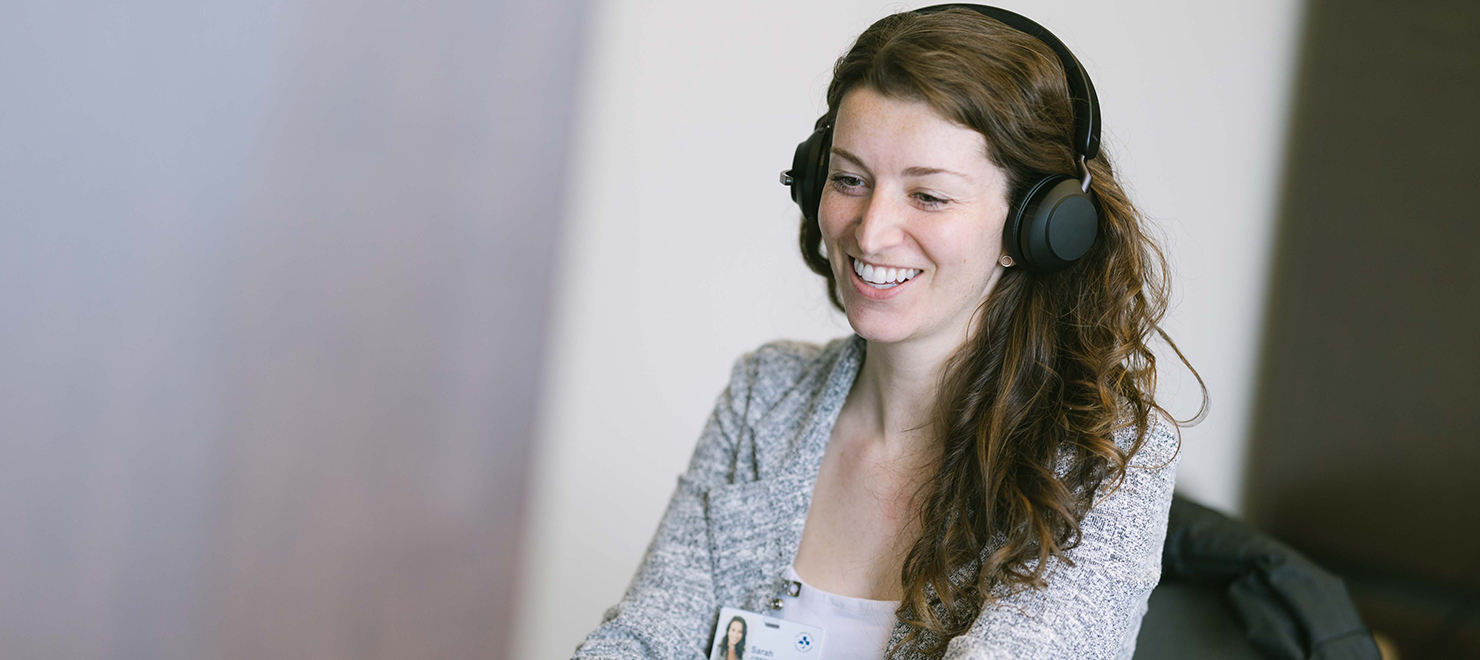
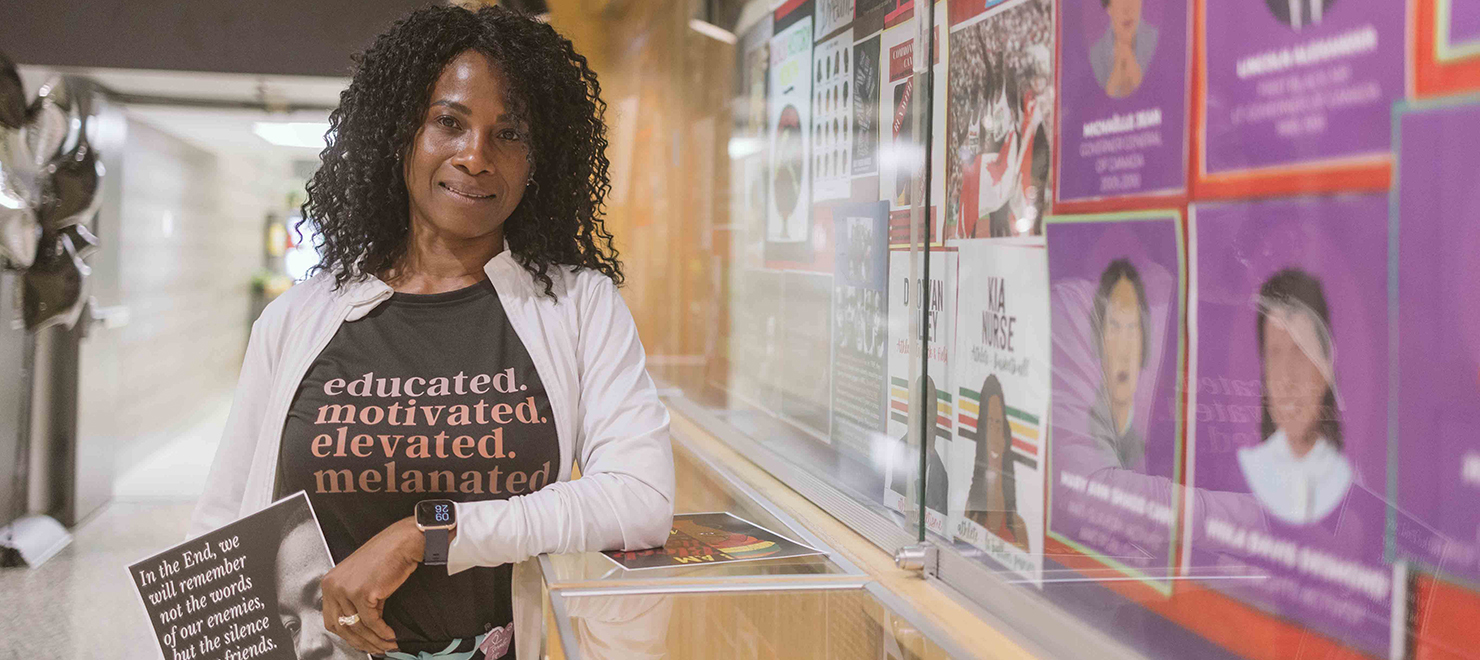
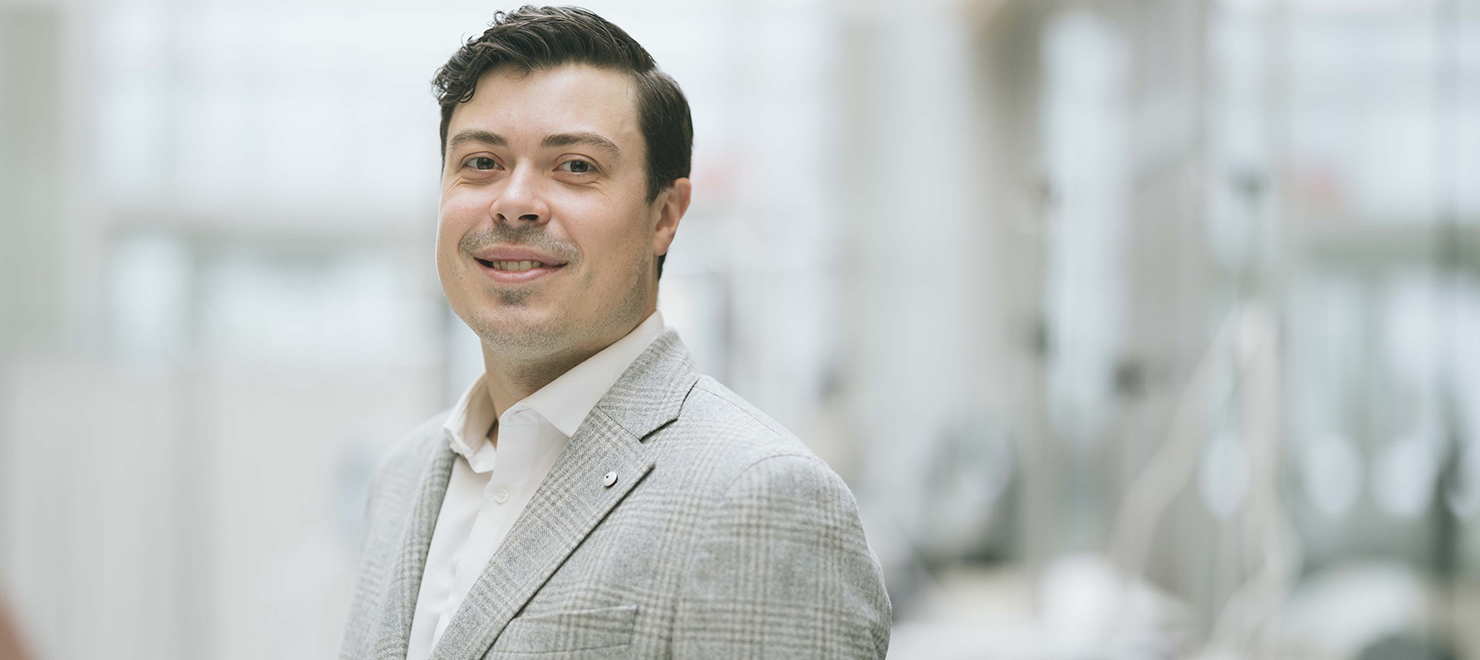
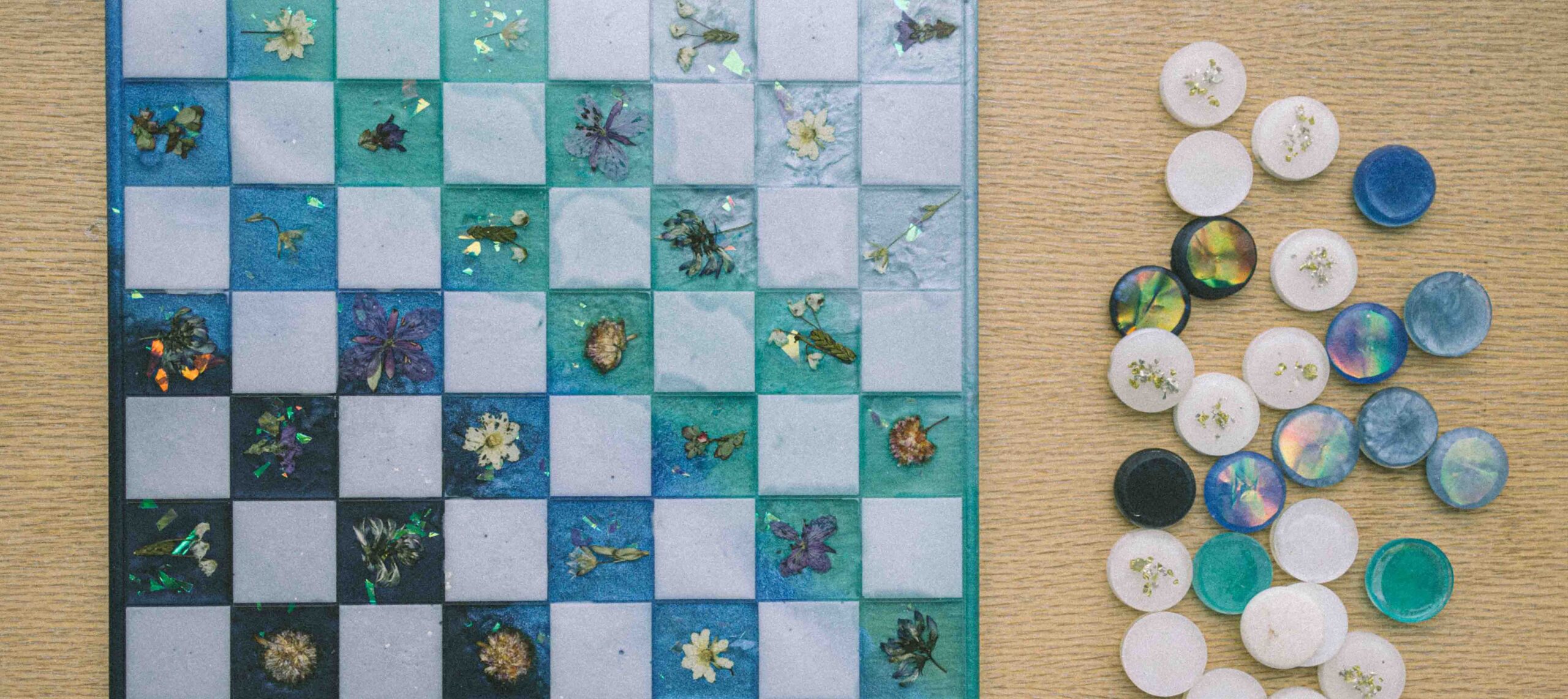
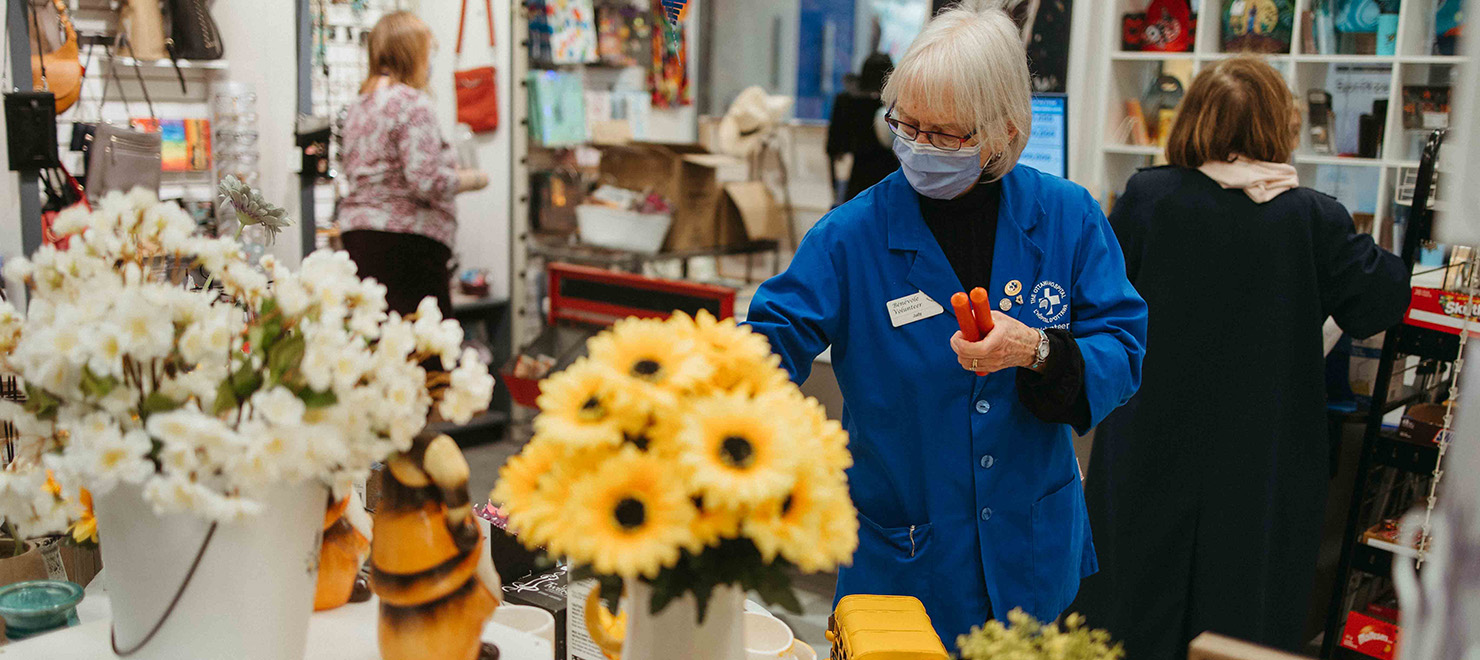
Comment on this post